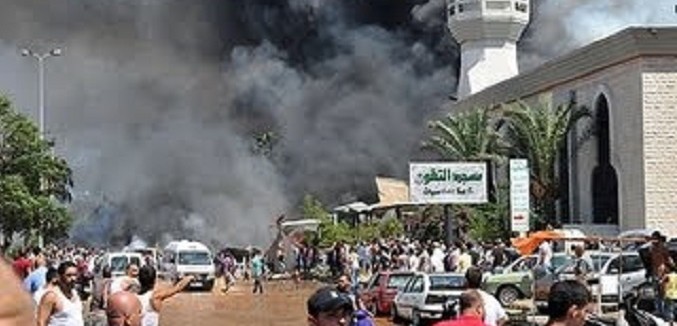Twin car bombings targeted Sunni mosques in the northern Lebanese city of Tripoli on Friday, killing at least 42 people. A video showing the explosions is embedded below (age-restricted; please observe a strong content warning).
The attacks came eight days after a car bomb detonated in Hezbollah’s southern Beirut stronghold of Dahiyeh killed at least 22 people and injured hundreds. That bombing itself was the second such attack in Dahiyeh in as many months, and came after Sunni groups threatened to target Hezbollah in Lebanon in retaliation for Lebanon’s activities on behalf of the Shiite-backed Bashar al-Assad regime in Syria.
Today’s attack has experts fearing that Lebanon is slipping into cyclical sectarian violence of the kind that has recently griped Iraq:
The explosions come a week after a suicide car bombing killed 27 people in a Beirut Hizbullah stronghold. On Wednesday, army chief General Jean Qahwaji said his forces were fighting a “total war” against terrorism whose aim is “to provoke sectarian strife” in the country.
He said the army had been pursuing a “terrorist cell that prepares car bombs and sends them to residential neighborhoods.” He said “the gravity… lies in the fact that this cell is not targeting any one region or community in particular, but that it aims to provoke sectarian strife by targeting different regions,” said Qahwaji.
Hezbollah chief Hassan Nasrallah vowed after the Beirut bombings to double the group’s deployment in Syria. In an effort to contain further anticipated blowback, the Iran-backed group in recent days began transforming its southern Beirut areas into what Agence France Presse described as a “fortress.”
[Photo: LMC CHANNELVIEW / YouTube]




